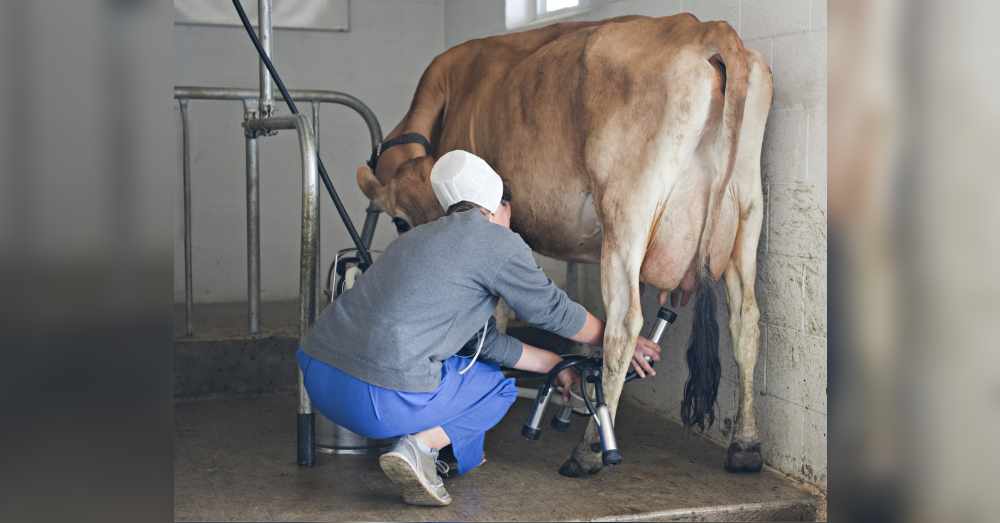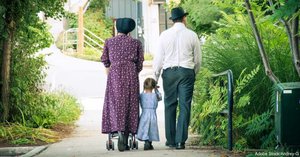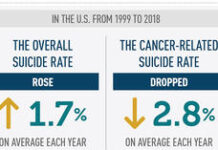Amish and Mennonite women may not be allowed to use many of the common technologies that most of us employ on a day-to-day basis, but that doesn’t make them exempt from breast cancer. However, many Amish and Mennonite women do not receive the timely diagnosis and treatment they need because their religious beliefs keep them from being able to travel long distances to a mammogram appointment. Because they lack the technology most of us have ready access to, they are also often less educated than they should be about the signs and symptoms of breast cancer and the resources available to them, and they don’t carry health insurance to be able to get care when needed. And as if that wasn’t enough, there’s often a language barrier between these communities and medical professionals, because many of them speak German or Dutch and are less fluent in English.Because of these and other factors, breast cancer is the leading cause of death in Amish women under 60. Only about 20 percent of Amish women have ever had a mammogram, let alone a yearly or biannual one.But Melissa Thomas, director of the Center for Appalachia Research and Cancer Education, is hoping to change lives and save lives with the help of a small team and a mobile clinic that visits Amish and Mennonite communities in Ohio to teach them about breast cancer and offer mammograms. Photo: Adobe Stock/Glenda Powers
Photo: Adobe Stock/Glenda Powers
Ohio has one of the largest populations of Amish people in the United States, and most of those live in the Appalachian region, where many cancers that are detectable with screening, such as breast cancer, occur more often. The high rates of breast cancer among Amish and Mennonite populations in this area makes the work Thomas and her team do very important.“We like to bridge the gap between the culture of Amish and Mennonite communities and the culture of health care,” says Thomas. “We try to find screening locations that are in the most remote sections of the state, that are serving more than likely a more conservative group of Amish that may not have access or availability into the local hospital systems.”The team utilizes a large pink bus outfitted with a full mammography exam room to help clients get the diagnoses they need so they can be treated and survive the disease. They park the vehicle at Amish and Mennonite churches and other community gathering places to make sure they are as accessible as possible to as many families as possible.
 Photo: Adobe Stock/Greg Kelton“It’s a typical mammogram room—if you went to a hospital it would look exactly the same,” says mammographer Valerie Rice. “It’s nothing really different, except that it’s in a moving vehicle!”At the Center for Appalachia Research and Cancer Education, Thomas focuses on disparities related to health care access between different communities in the area. She organizes mobile clinics about 25 times each year to reach out to the people most in need of better health care.As more women, like 80-year-old Ella Miller, are treated for breast cancer and survive the disease, the Amish community is slowly beginning to understand the importance of mammograms and treatments. It’s very ingrained in their beliefs that mammograms can cause cancer and that God does not desire them to have medical interventions, but people like Miller are changing their minds little by little. Miller is a 30-year breast cancer survivor who underwent a mastectomy and is now a community health worker with the mobile clinic.
Photo: Adobe Stock/Greg Kelton“It’s a typical mammogram room—if you went to a hospital it would look exactly the same,” says mammographer Valerie Rice. “It’s nothing really different, except that it’s in a moving vehicle!”At the Center for Appalachia Research and Cancer Education, Thomas focuses on disparities related to health care access between different communities in the area. She organizes mobile clinics about 25 times each year to reach out to the people most in need of better health care.As more women, like 80-year-old Ella Miller, are treated for breast cancer and survive the disease, the Amish community is slowly beginning to understand the importance of mammograms and treatments. It’s very ingrained in their beliefs that mammograms can cause cancer and that God does not desire them to have medical interventions, but people like Miller are changing their minds little by little. Miller is a 30-year breast cancer survivor who underwent a mastectomy and is now a community health worker with the mobile clinic.
 Photo: Adobe Stock/Andrey-GMiller says she’s had success reminding women that cancer screening and treatment is important because God helps those who help themselves. “You should still do what needs to be done so God can heal you,” she says. “Because you need to help yourself, somewhat. Yes, God will help you, but you also have to do your part.”Women who are diagnosed with breast cancer after their mammograms are connected with nearby hospitals so they can receive further care and have a fighting chance at beating the disease. The hard work of women like Thomas and Miller is already paying off, and so many women are getting the help they need! Keep it up, ladies! Share on Facebook
Photo: Adobe Stock/Andrey-GMiller says she’s had success reminding women that cancer screening and treatment is important because God helps those who help themselves. “You should still do what needs to be done so God can heal you,” she says. “Because you need to help yourself, somewhat. Yes, God will help you, but you also have to do your part.”Women who are diagnosed with breast cancer after their mammograms are connected with nearby hospitals so they can receive further care and have a fighting chance at beating the disease. The hard work of women like Thomas and Miller is already paying off, and so many women are getting the help they need! Keep it up, ladies! Share on Facebook
Source








